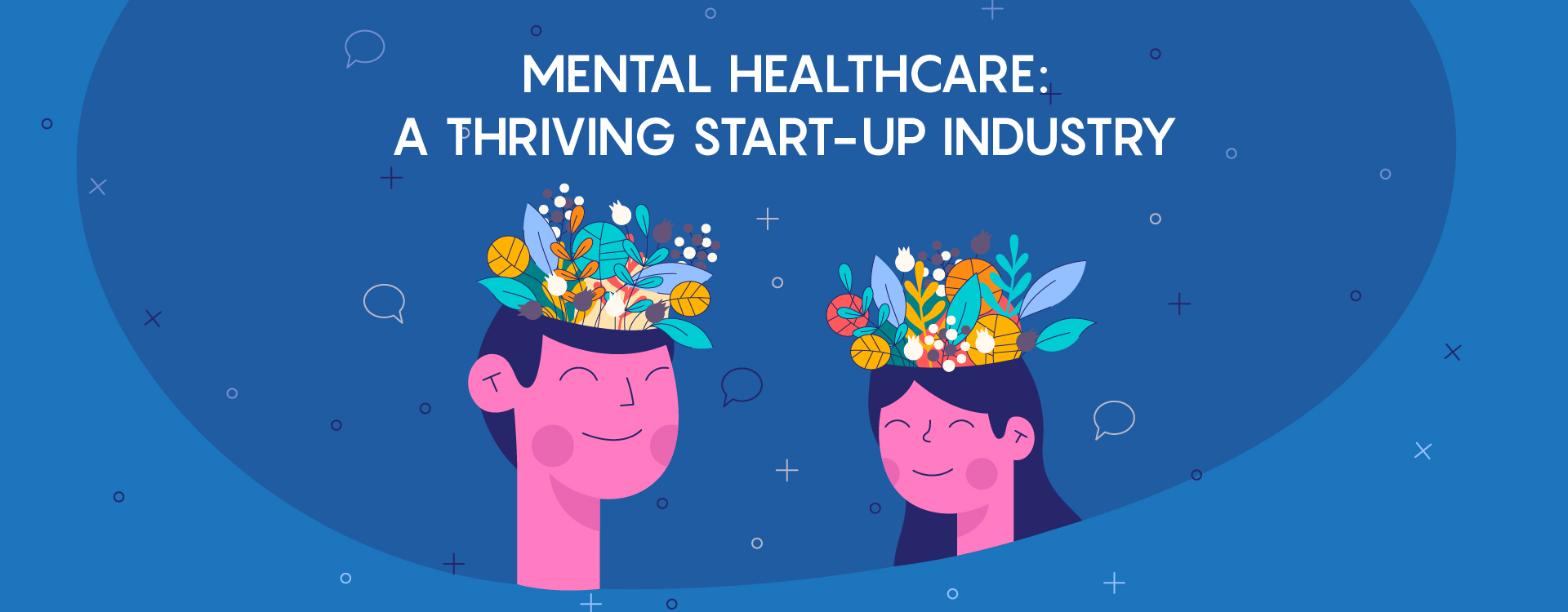Mental health start-ups are seizing opportunities and churning out innovative solutions to people who the most need help. Not only are mental health start-ups generating revenue and increasing the number of users, but they are also establishing their position in the market as change bearers for collective good.
Increasing Role of Artificial Intelligence (AI) and Machine Learning (ML) in Mental Health
Neuroscientists and doctors worldwide are using machine learning (ML) and artificial intelligence (AI) to develop treatment plans that can help identify some critical indicators before the onset of mental illness. There is a lot of data obtainable, and data scientists can collect it for mental healthcare professionals to do their work better.
What makes ML and AI so useful today is that in the past, the understanding of diagnosis was based on statistical averaging and overuse, but these technologies help customise data for individual cases.
‘‘
Machine learning and artificial intelligence can meet the specific needs of psychiatry. For decades, researchers have studied group media and statistics for people who may have the same diagnosis but have little understanding of individual patients.
Mental Health Deteriorated During the Outbreak of COVID-19
COVID-19 has dramatically increased public stress levels and mental health issues. More than 55% of people reported an increase in their stress levels, an increase in existing depression, and activation of new cases of mental health disorders.
The hybrid model, which supports human psychologists and artificial intelligence, is unique worldwide. The use of AI and ML allows for mass data customisation where essential services can be expanded according to personal preferences and services can be provided round the clock. The solutions attained from this model are based on solid clinical contributions to ensure a high level of ongoing care.
Indian Start-ups are Innovating Mental Health Cures and Solutions
Wysa, a mental health forum based in Bangalore, aims to solve mental health with a free artificial intelligence (AI) solution of ‘bot chat service’. According to the company, it saw a 94% rise in cases during the lockdown period from February 2020 to June 2020 compared to the same period in 2019.
In a sense, the company believes that its existing free services models can maximise coverage and new user acquisition. Wysa highlighted that the proposition of users referred to COVID-19 during therapist sessions increased week-on-week during March 2020, from 5% in the first week to 60% in the fourth week.
Machine Learning and Artificial Intelligence have helped change the face of mental health in two primary ways.
Identify biomarkers and develop a treatment plan
When a patient is diagnosed with a mental illness, a trial and error method is employed to obtain the correct medication dose and a proper treatment plan. With ML and AI at their disposal, mental health doctors will not need a trial and error method. Not all patients’ experience is the same with mental disorders such as depression. The symptoms of one patient are different from the next.
Machine learning algorithms help identify behavioural biomarkers, which are essential for supporting mental health professionals to ascertain when a patient is at risk for a specific mental illness. Besides, algorithms can help monitor the effectiveness of treatment plans.
Crisis prediction
It is essential to understand that people with specific diseases such as panic attacks, psychosis, mania, migraines, etc., are at higher risk. Monitoring patients who have been diagnosed with mental health issues improves their chances of normalcy with apt solutions.
However, certain conditions (such as schizophrenia and bipolar disorder) have a higher risk of seizures. And psychiatrists are responsible for reducing the anxiety risk of the patient in such cases.
Digital Solutions for Mental Health Issues – what’s in it for newcomers?
Compared to physical clinics, online consulting and digital platforms provide mental health patients with a safer place to share their problems. Given the fear of being judged or seen by people at a mental health facility or doctor’s office, the patient always has an unpleasant stigma. And digitisation of the solutions eradicates such possibilities.
Machine learning and artificial intelligence can meet the specific needs of psychiatry. For decades, researchers have studied group media and statistics for people who may have the same diagnosis but have little understanding of individual patients. But these new technologies can allow them to make personal predictions in unprecedented ways.
In a nutshell, new companies working in this field have vast opportunities to develop and capture the market to help people on a large scale.




